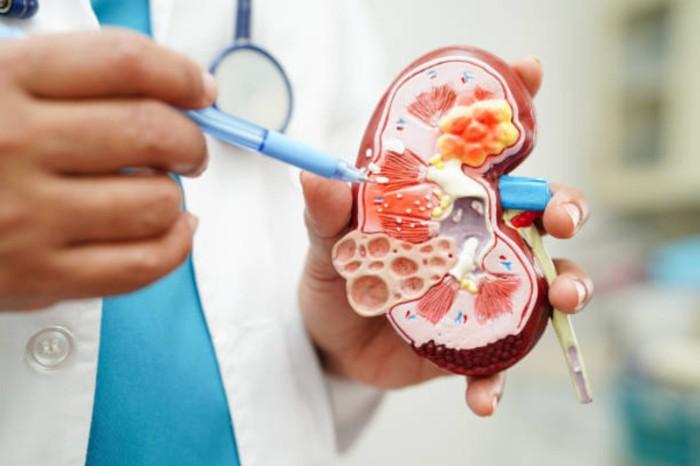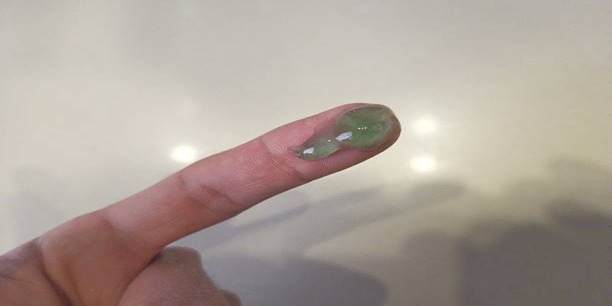High creatinine levels in the blood can be a sign of serious health problems, so it is important to pay attention to any symptoms associated with high creatinine. These may include fatigue, loss of appetite, nausea and vomiting, abdominal pain or swelling, and difficulty concentrating. In some cases there might even be signs of kidney failure such as changes in urine color or increased urination frequency. It is essential that you seek medical advice if you are experiencing any of these symptoms as they could indicate an underlying condition which needs treatment.
Overview of High Creatinine Symptoms:
Creatinine is a waste product of normal muscle metabolism that gets filtered out by the kidneys. High levels of creatinine in the blood can indicate poor kidney function, which can ultimately lead to kidney failure. Symptoms of high creatinine levels can include fatigue, swelling in the feet and ankles, decreased appetite, and difficulty concentrating. It is important to note that high creatinine levels may not cause any symptoms, and they can only be detected through a blood test. Therefore, it is essential to monitor your kidney function and seek medical attention if you experience any unusual symptoms or have any concerns about your health.
Fatigue and Loss of Appetite:
When creatinine levels are high, it can cause fatigue because the body is not able to process toxins efficiently. This can lead to a decreased appetite and overall fatigue.
Abdominal Pain and Swelling:
High creatinine levels can also cause abdominal pain or swelling, as the body is not able to filter out waste products from the blood efficiently. This can lead to an accumulation of fluids in the abdomen, causing bloating and discomfort.
Difficulty Concentrating: Another symptom of high creatinine levels is difficulty concentrating or thinking clearly. This is because the toxins that accumulate in the body due to kidney dysfunction can affect brain function.
Changes in Urine Color and Increased Urination Frequency: High creatinine levels may also be accompanied by changes in urine color and increased urination frequency, as the kidneys are unable to filter waste products from the blood normally. This can lead to dark or discolored urine, as well as an increase in the number of times you need to urinate.
Nausea, Vomiting:

Another symptom of high creatinine levels is nausea and vomiting. This can be caused by the accumulation of toxins in the body, as well as dehydration from increased urination frequency.
It is important to seek medical attention if you are experiencing any of these symptoms, as they could indicate an underlying condition which needs treatment.
High creatinine levels can be a sign of serious health problems, so it is essential to take appropriate action if you experience any unusual signs or symptoms. Your doctor will be able to conduct tests to assess your kidney function and provide the appropriate treatment.
Lifestyle changes such as eating a balanced diet and exercising regularly may help reduce creatinine levels in the blood and improve overall kidney function. With proper treatment and lifestyle changes, you can help keep your creatinine levels in a healthy range.
Difficulty Concentrating:
Another symptom of high creatinine levels is difficulty concentrating or thinking clearly. This is because the toxins that accumulate in the body due to kidney dysfunction can affect brain function. High levels of creatinine in the blood can impair cognitive function, making it difficult to focus on tasks and think logically.
It is important to seek medical attention if you are having difficulty concentrating or if your thinking becomes muddled. Your doctor can order tests to check your creatinine levels and provide treatment accordingly.
Signs of Kidney Failure:
If left untreated, high creatinine levels can lead to kidney failure. Signs of kidney failure include changes in urine output, fluid retention and swelling, fatigue, nausea and vomiting, and difficulty breathing or shortness of breath. It is important to seek medical attention if you experience any of these symptoms as it may be a sign that your kidneys are not functioning properly.
Monitoring creatinine levels and taking measures to reduce them can help prevent kidney failure, and it is important to seek attention if you have any concerns about your health. Lifestyle changes such as following a healthy diet, staying hydrated and exercising regularly can also help keep your creatinine levels in a healthy range.
Seeking Medical Advice for High Creatinine Symptoms:
It is important to seek medical advice if you experience any of the symptoms associated with high creatinine levels. Your doctor can order tests to assess your kidney function and provide appropriate treatments or lifestyle changes accordingly. With proper management, you can help keep your creatinine levels in a healthy range and reduce your risk of developing serious health issues.
Prevention and Treatment Options for High Creatinine Levels:

Preventing high creatinine levels involves maintaining a healthy diet, exercising regularly and avoiding substances that can harm the kidneys. Your doctor may also recommend medications or lifestyle changes to reduce creatinine levels if necessary. Following your doctor’s advice regarding kidney health and monitoring your creatinine levels regularly can help keep them in a safe range.
Conclusion:
High creatinine levels can be a sign of serious health problems and should not be ignored. It is important to seek medical attention if you experience any of the symptoms associated with high creatinine levels, as they could indicate an underlying condition that needs treatment. With proper management, you can help keep your creatinine levels in a healthy range and reduce your risk of developing serious health issues. Prevention is key to keeping creatinine levels low, so it is essential to maintain a healthy diet, exercise regularly and seek medical advice if you have any concerns about your kidney health.
FAQs:
What causes high creatinine levels?
High creatinine levels can be caused by a variety of factors, including dehydration, kidney disease, and certain medications.
How can I lower my creatinine levels?
Making lifestyle changes such as following a healthy diet, staying hydrated and exercising regularly can help reduce your creatinine levels. Your doctor may also prescribe medications or suggest other treatments to help reduce your creatinine levels if needed.
What are the symptoms of high creatinine levels?
Symptoms of high creatinine levels include fatigue, nausea and vomiting, difficulty concentrating, fluid retention and swelling, changes in urine output, and difficulty breathing or shortness of breath.




